By Mike Ethan Messick
(LSM Sept/Oct 2011/vol. 4 – Issue 5)
Hard as it may be to believe in the hyper-connected, niche-friendly world of today, there was a time when “alt-country” was not the sort of thing one would aspire to, at least not with any slim hope of making a viable career out of it. In 1984 — 27 years ago, and worlds away by music-business reckoning — there was something brave and sweetly Quixotic about an aspiring country-folk artist, his demeanor somewhere between shy and wry and his voice more comparable to a bawling calf than a Top 40 country crooner, scraping together a few thousand bucks to make a record as dusty, durable, and defiantly uncommercial as No Kinda Dancer.
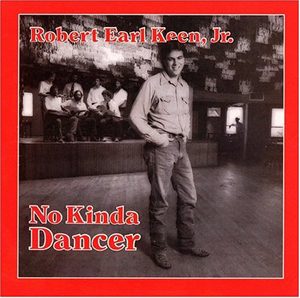 Originally leased to Rounder Records, which issued it on its Philo imprint, Robert Earl Keen’s self-produced debut album wasn’t entirely without precedent — but it was definitely an anomaly in its time. Raised on everything from classic country to arena rock growing up in a nice middle-class Houston family, Keen’s itch to make his own music was largely stirred in his late teens when, as he recounts in the recording of “The Bluegrass Widow” captured on his second record, 1988’s The Live Album, he developed a taste for the acoustic storytelling of old-school bluegrass. It also emboldened his approach to his career; the more contemporary bluegrass artists in his collection weren’t exactly commercial powerhouses, but they found a way to market themselves effectively enough through sweat, hustle, and talent. A move to Austin and some confidence-building live gigs introduced him to local folk favorite Nanci Griffith, an outside-the-box success who lent her support and harmony vocals on the debut. No Kinda Dancer also featured a co-write from Lyle Lovett, Keen’s neighbor, close friend, and musical co-conspirator from their shared college days at Texas A&M University. “The Front Porch Song,” an affectionate tribute to the sights and personalities of a bygone Bryan/College Station, also appeared on Lovett’s self-titled 1986 MCA Records debut (tweaked in both title and tempo), a surprise success as Nashville briefly flirted with putting some weight behind left-of-center young artists like Lovett, Steve Earle, and Dwight Yoakam. Keen soon made tracks for Nashville himself, but he remained on the fringe of a fringe — and by the time he returned to Texas to record and release The Live Album, the sun was already setting on mainstream country’s interest in his fellow iconoclasts. But it was just beginning to rise on Keen’s own less conventional success story.
Originally leased to Rounder Records, which issued it on its Philo imprint, Robert Earl Keen’s self-produced debut album wasn’t entirely without precedent — but it was definitely an anomaly in its time. Raised on everything from classic country to arena rock growing up in a nice middle-class Houston family, Keen’s itch to make his own music was largely stirred in his late teens when, as he recounts in the recording of “The Bluegrass Widow” captured on his second record, 1988’s The Live Album, he developed a taste for the acoustic storytelling of old-school bluegrass. It also emboldened his approach to his career; the more contemporary bluegrass artists in his collection weren’t exactly commercial powerhouses, but they found a way to market themselves effectively enough through sweat, hustle, and talent. A move to Austin and some confidence-building live gigs introduced him to local folk favorite Nanci Griffith, an outside-the-box success who lent her support and harmony vocals on the debut. No Kinda Dancer also featured a co-write from Lyle Lovett, Keen’s neighbor, close friend, and musical co-conspirator from their shared college days at Texas A&M University. “The Front Porch Song,” an affectionate tribute to the sights and personalities of a bygone Bryan/College Station, also appeared on Lovett’s self-titled 1986 MCA Records debut (tweaked in both title and tempo), a surprise success as Nashville briefly flirted with putting some weight behind left-of-center young artists like Lovett, Steve Earle, and Dwight Yoakam. Keen soon made tracks for Nashville himself, but he remained on the fringe of a fringe — and by the time he returned to Texas to record and release The Live Album, the sun was already setting on mainstream country’s interest in his fellow iconoclasts. But it was just beginning to rise on Keen’s own less conventional success story.
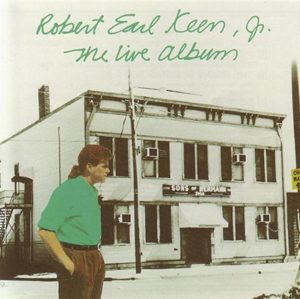 Recorded at Dallas’ Sons of Hermann Hall with spare but essential backup from upright bassist Roy Huskey Jr. and fiddler/mandolinist/guitarist Jonathan Yudkin, The Live Album found Keen showcasing not only some startlingly good new originals (“I Would Change My Life,” “I’ll Go On Downtown”) but also a unique charisma and gift for storytelling in more ways than one. His narrative songwriting on “Goin’ Down in Style” and “I Wanna Know” reflected his former-English-major mindset, and his ability to weave an offbeat, self-deprecating spoken anecdote into the likes of “The Front Porch Song,” “The Bluegrass Widow,” and “Copenhagen” put him at the forefront of talented contemporary folk artists that you just had to see (or hear) live.
Recorded at Dallas’ Sons of Hermann Hall with spare but essential backup from upright bassist Roy Huskey Jr. and fiddler/mandolinist/guitarist Jonathan Yudkin, The Live Album found Keen showcasing not only some startlingly good new originals (“I Would Change My Life,” “I’ll Go On Downtown”) but also a unique charisma and gift for storytelling in more ways than one. His narrative songwriting on “Goin’ Down in Style” and “I Wanna Know” reflected his former-English-major mindset, and his ability to weave an offbeat, self-deprecating spoken anecdote into the likes of “The Front Porch Song,” “The Bluegrass Widow,” and “Copenhagen” put him at the forefront of talented contemporary folk artists that you just had to see (or hear) live.
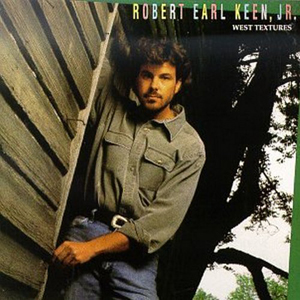 Increasing his release pace considerably, Keen struck again in 1989 with his second studio set, West Textures. Huskey and Yudkin were still on board, rounded out with a subdued country-folk ensemble by producer Jim Rooney as Keen stuck to his guns with more richly detailed story songs, nary a dud in the bunch (despite the curious inclusion of three cover tunes) but none more essential to Keen’s work going forward as “The Road Goes on Forever.” Still his signature tune, the almost novella-length ballad of a waitress and her doomed outlaw boyfriend was already a stunner as an upbeat acoustic-based number; at his increasingly crowded live gigs, it morphed into not only a show-stopping shout-along but also an opportunity to jam. Bigger audiences at bigger venues had given Keen the mandate to put together a crackerjack full band, which in time would come to include loyal longtime sidemen the caliber of bassist Bill Whitbeck, lead guitarist Rich Brotherton, and fiddler Bryan Duckworth, who had been a friend of Keen’s since childhood and through his pickin’-with-Lovett college years.
Increasing his release pace considerably, Keen struck again in 1989 with his second studio set, West Textures. Huskey and Yudkin were still on board, rounded out with a subdued country-folk ensemble by producer Jim Rooney as Keen stuck to his guns with more richly detailed story songs, nary a dud in the bunch (despite the curious inclusion of three cover tunes) but none more essential to Keen’s work going forward as “The Road Goes on Forever.” Still his signature tune, the almost novella-length ballad of a waitress and her doomed outlaw boyfriend was already a stunner as an upbeat acoustic-based number; at his increasingly crowded live gigs, it morphed into not only a show-stopping shout-along but also an opportunity to jam. Bigger audiences at bigger venues had given Keen the mandate to put together a crackerjack full band, which in time would come to include loyal longtime sidemen the caliber of bassist Bill Whitbeck, lead guitarist Rich Brotherton, and fiddler Bryan Duckworth, who had been a friend of Keen’s since childhood and through his pickin’-with-Lovett college years.
The possibilities entailed by rounding out his sound became clearer as the Robert Earl Keen Band grew into one of the hottest touring acts in the state. Collegiate crowds became a particularly visible share of the audience. The enthusiasm spread among young fans rooted enough to love fiddle-stoked rave-ups about snuff and bass fishing but tech-savvy enough to spread the word in Internet chat rooms and discussion boards. Music journalists, club owners and fellow artists were catching on, too. Lubbock rocker Joe Ely recorded sterling covers of “The Road Goes on Forever” and a newer Keen song, “Whenever Kindness Fails,” for his 1992 album Love and Danger. By the time Keen took his proverbial great leap forward with 1993’s A Bigger Piece of Sky, the anticipation awaiting it was palpable.
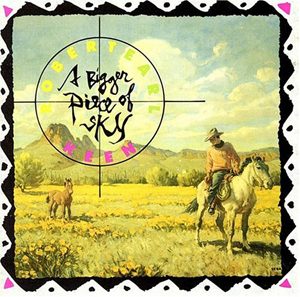 A Bigger Piece of Sky didn’t so much re-invent Keen’s sound as it redecorated it. There were still hard-living story songs (“Jesse with the Long Hair,” “Corpus Christi Bay”) and finger-picked soul searchers (“Paint the Town Beige,” “So I Can Take My Rest”) that would’ve been at place on his earlier albums, but along with producer Garry Velletri and a venerable studio cast — country veteran Marty Stuart, longtime Bruce Springsteen bassist Garry Tallent, and Irish folk standout Maura O’Connell among them — Keen made a record as sonically rich and varied as anything in mainstream music at the time. A strain of pitch-black humor crowded out the more folksy laughs he’d delivered before. “Whenever Kindness Fails” told the story of a misunderstood drifter with a murderous streak, friendly enough until some show of disrespect drove him to homicide; “Blow You Away,” somewhere between a stomp and a waltz, spun images of urban paranoia as deftly as anyone this side of Keen’s fellow Houston natives the Geto Boys. The leering “Here in Arkansas” and a swaggering cover of fellow Texan Terry Allen’s “Amarillo Highway” added to a sense of danger that the album occasionally stepped away from but never quite shook.
A Bigger Piece of Sky didn’t so much re-invent Keen’s sound as it redecorated it. There were still hard-living story songs (“Jesse with the Long Hair,” “Corpus Christi Bay”) and finger-picked soul searchers (“Paint the Town Beige,” “So I Can Take My Rest”) that would’ve been at place on his earlier albums, but along with producer Garry Velletri and a venerable studio cast — country veteran Marty Stuart, longtime Bruce Springsteen bassist Garry Tallent, and Irish folk standout Maura O’Connell among them — Keen made a record as sonically rich and varied as anything in mainstream music at the time. A strain of pitch-black humor crowded out the more folksy laughs he’d delivered before. “Whenever Kindness Fails” told the story of a misunderstood drifter with a murderous streak, friendly enough until some show of disrespect drove him to homicide; “Blow You Away,” somewhere between a stomp and a waltz, spun images of urban paranoia as deftly as anyone this side of Keen’s fellow Houston natives the Geto Boys. The leering “Here in Arkansas” and a swaggering cover of fellow Texan Terry Allen’s “Amarillo Highway” added to a sense of danger that the album occasionally stepped away from but never quite shook.
As critical praise and respectable sales made A Bigger Piece of Sky his career record, in many markets the Robert Earl Show now called for a concert hall or outdoor venue, not to mention a truly heroic supply of beer. A handful of those impressionable college-aged fans became artists in their own right, frequently marketing themselves at least implicitly as heirs to Keen’s blend of rootsy songwriting and rollicking live delivery. Jack Ingram and Pat Green each included Keen songs on their self-released debuts, and Green and Roger Creager name-checked him in songs on their first albums just in case anyone was missing the connection.
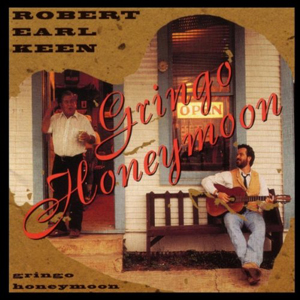 Striking while the iron was hot, Keen waited less than a year to chase A Bigger Piece of Sky with Gringo Honeymoon in 1994. Velletri stayed at the production helm and much of the studio personnel remained the same, but the feel was decidedly different: A Bigger Piece of Sky had been as all-over-the-place as an alternate-universe Garth Brooks record, but Gringo Honeymoon sounded like it could have been recorded in one sitting, with a warm, autumnal vibe prevailing. The attention-getting, sinister edge of its predecessor had also been largely ditched in favor of kindhearted tunes like “Lonely Feeling” (still Keen’s greatest triumph as a songwriter, to these ears) and the enduringly funny “Merry Christmas from the Family.” His writing and regular-guy delivery still packed enough of a punch to keep things interesting (a cover of Steve Earle’s swaggering outlaw ballad “Tom Ames’ Prayer” didn’t hurt), and on “I’m Comin’ Home” and “Dreadful Selfish Crime” he displayed a talent rarely seen in any genre: an ability to sing about his own career without coming across as a self-absorbed jackass. Like West Textures, some of the more upbeat material would be eclipsed by versions on rough-and-ready live albums, but also like that early success it drew attention to the more soulful shades in his songwriting palette.
Striking while the iron was hot, Keen waited less than a year to chase A Bigger Piece of Sky with Gringo Honeymoon in 1994. Velletri stayed at the production helm and much of the studio personnel remained the same, but the feel was decidedly different: A Bigger Piece of Sky had been as all-over-the-place as an alternate-universe Garth Brooks record, but Gringo Honeymoon sounded like it could have been recorded in one sitting, with a warm, autumnal vibe prevailing. The attention-getting, sinister edge of its predecessor had also been largely ditched in favor of kindhearted tunes like “Lonely Feeling” (still Keen’s greatest triumph as a songwriter, to these ears) and the enduringly funny “Merry Christmas from the Family.” His writing and regular-guy delivery still packed enough of a punch to keep things interesting (a cover of Steve Earle’s swaggering outlaw ballad “Tom Ames’ Prayer” didn’t hurt), and on “I’m Comin’ Home” and “Dreadful Selfish Crime” he displayed a talent rarely seen in any genre: an ability to sing about his own career without coming across as a self-absorbed jackass. Like West Textures, some of the more upbeat material would be eclipsed by versions on rough-and-ready live albums, but also like that early success it drew attention to the more soulful shades in his songwriting palette.
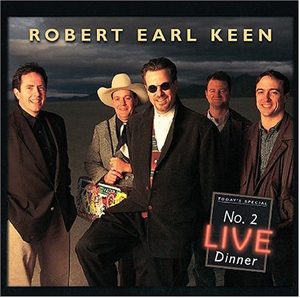 At this point in his career, a second live album seemed less like self-indulgence (or a half-assed kowtow to contractual obligations) and more like a hotly demanded document of possibly the greatest band in the country, roots-music division at least. No. 2 Live Dinner delivered grandly, with producer Lloyd Maines adding his indelible steel guitar to the blazing interplay between Brotherton and Duckworth, while Whitbeck and drummer Mark Patterson anchored the combo through what amounted to a best-of-up-till-now with a raucous full-band show at Floore’s Country Store in Helotes followed by a couple of selections from an acoustic set at Austin’s legendary Cactus Cafe. Sonically a cut above most roots-music live records, and in a class of its own material-wise, the extra kick of live energy makes these versions of “Think It Over One Time,” “Amarillo Highway,” and “The Road Goes On Forever” feel like the definitive takes.
At this point in his career, a second live album seemed less like self-indulgence (or a half-assed kowtow to contractual obligations) and more like a hotly demanded document of possibly the greatest band in the country, roots-music division at least. No. 2 Live Dinner delivered grandly, with producer Lloyd Maines adding his indelible steel guitar to the blazing interplay between Brotherton and Duckworth, while Whitbeck and drummer Mark Patterson anchored the combo through what amounted to a best-of-up-till-now with a raucous full-band show at Floore’s Country Store in Helotes followed by a couple of selections from an acoustic set at Austin’s legendary Cactus Cafe. Sonically a cut above most roots-music live records, and in a class of its own material-wise, the extra kick of live energy makes these versions of “Think It Over One Time,” “Amarillo Highway,” and “The Road Goes On Forever” feel like the definitive takes.
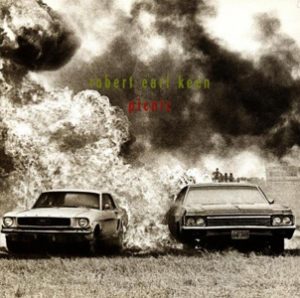 The two new songs on No. 2 Live Dinner hinted at a possible Western swing direction in Keen’s future, a suspicion he didn’t waste time disproving. Breaking ties with Sugar Hill, he moved on to Arista’s short-lived Austin division to record his 1997 album Picnic with producer John Keane, who brought a folk-rock resume that included the likes of R.E.M. and the Cowboy Junkies. Keen met him more than halfway with a batch of songs — including his own obliquely poetic “Over The Waterfall” as well as James McMurtry’s “Levelland” and Dave Alvin’s “Fourth of July” — that sounded more akin to the producer’s previous clients than Keen’s previous albums. The darker edges of A Bigger Piece of Sky were revisited with the swirling about-to-snap anthem “Undone” and the white-trash crime story “Shades of Gray”; even the album’s most tender song, “Then Came Lo Mein” (featuring a beguiling guest vocal from Junkies’ frontwoman Margo Timmins) was about soothing a lover through a nervous breakdown at a Chinese buffet. Keen himself has been dismissive about the album, and while it has its faults (over-reliant on covers, sags a bit in the middle, and “Shades of Gray” suffers in comparison to his earlier crime story songs), it’s buoyed by the likes of “Undone” and “Oh Rosie” and Keen’s willingness to stretch his boundaries. It’s also arguably the first and maybe only Keen album without an obvious “funny song,” an obligation he began to seem comfortable leaving to his more frat-friendly musical descendants.
The two new songs on No. 2 Live Dinner hinted at a possible Western swing direction in Keen’s future, a suspicion he didn’t waste time disproving. Breaking ties with Sugar Hill, he moved on to Arista’s short-lived Austin division to record his 1997 album Picnic with producer John Keane, who brought a folk-rock resume that included the likes of R.E.M. and the Cowboy Junkies. Keen met him more than halfway with a batch of songs — including his own obliquely poetic “Over The Waterfall” as well as James McMurtry’s “Levelland” and Dave Alvin’s “Fourth of July” — that sounded more akin to the producer’s previous clients than Keen’s previous albums. The darker edges of A Bigger Piece of Sky were revisited with the swirling about-to-snap anthem “Undone” and the white-trash crime story “Shades of Gray”; even the album’s most tender song, “Then Came Lo Mein” (featuring a beguiling guest vocal from Junkies’ frontwoman Margo Timmins) was about soothing a lover through a nervous breakdown at a Chinese buffet. Keen himself has been dismissive about the album, and while it has its faults (over-reliant on covers, sags a bit in the middle, and “Shades of Gray” suffers in comparison to his earlier crime story songs), it’s buoyed by the likes of “Undone” and “Oh Rosie” and Keen’s willingness to stretch his boundaries. It’s also arguably the first and maybe only Keen album without an obvious “funny song,” an obligation he began to seem comfortable leaving to his more frat-friendly musical descendants.
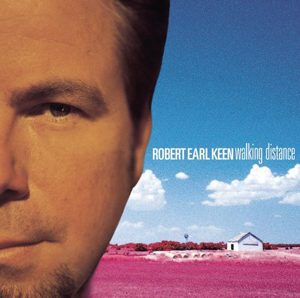 Picnic sold well but wasn’t the game-changer Arista Austin might have hoped for; all the same, they doubled down with Walking Distance the next year, an uneven record suffering from a multiple personality disorder. A couple of songs sound like sincere stabs at a mainstream hit (“Down that Dusty Trail,” “I’ll Be Here for You”); a couple sound like engaging redneck humor at best (unneeded sequel “Happy Holidays Y’all,” “That Buckin’ Song”); and the “Road to No Return” trilogy of songs comes across in context like a concept album compressed and shoehorned into an odds-and-sods compilation. Then again, “Feelin’ Good Again” holds up as one of Keen’s best, and “I’ll Be Here for You” meant hardcore fans finally had a Keen song to dance to at their weddings. Not a total loss.
Picnic sold well but wasn’t the game-changer Arista Austin might have hoped for; all the same, they doubled down with Walking Distance the next year, an uneven record suffering from a multiple personality disorder. A couple of songs sound like sincere stabs at a mainstream hit (“Down that Dusty Trail,” “I’ll Be Here for You”); a couple sound like engaging redneck humor at best (unneeded sequel “Happy Holidays Y’all,” “That Buckin’ Song”); and the “Road to No Return” trilogy of songs comes across in context like a concept album compressed and shoehorned into an odds-and-sods compilation. Then again, “Feelin’ Good Again” holds up as one of Keen’s best, and “I’ll Be Here for You” meant hardcore fans finally had a Keen song to dance to at their weddings. Not a total loss.
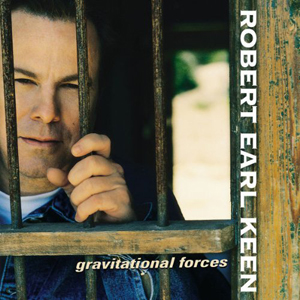 When Arista’s Austin division folded, the undeterred Keen stuck with Walking Distance producer Gurf Morlix and his road band to make Gravitational Forces, which found a home with roots-music specialists Lost Highway in 2001. Again, there were issues with over-reliance on outside material and rehashing the past; the band’s take on “Walking Cane” absolutely smokes, but it’s crowded out by covers of Johnny Cash, Terry Allen, J.D. Crowe, Townes Van Zandt, and Keen himself as he leads the band on a rip through a new recording of “The Road Goes on Forever.” On the upside, “Wild Wind” was a hard-shuffling, twangy charmer and “Not a Drop of Rain” a heartbreaker, and even the less-essential numbers still sound like a million bucks. On the downside, the title track initiated a tradition that every album contain at least one almost impenetrably “weird” track.
When Arista’s Austin division folded, the undeterred Keen stuck with Walking Distance producer Gurf Morlix and his road band to make Gravitational Forces, which found a home with roots-music specialists Lost Highway in 2001. Again, there were issues with over-reliance on outside material and rehashing the past; the band’s take on “Walking Cane” absolutely smokes, but it’s crowded out by covers of Johnny Cash, Terry Allen, J.D. Crowe, Townes Van Zandt, and Keen himself as he leads the band on a rip through a new recording of “The Road Goes on Forever.” On the upside, “Wild Wind” was a hard-shuffling, twangy charmer and “Not a Drop of Rain” a heartbreaker, and even the less-essential numbers still sound like a million bucks. On the downside, the title track initiated a tradition that every album contain at least one almost impenetrably “weird” track.
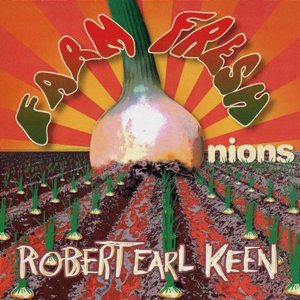 Keen parted ways with Lost Highway (for the moment, anyway) and took a more independent tack with Farm Fresh Onions, released on Audium/Koch in 2003. His longtime right-hand guitar man Brotherton took over production duties and steered things in a looser, almost garage-rock spirited direction, playing multiple instruments (including some of the loudest electric guitar of his career) and fleshing out the band with ringers like Ian McLagan on keyboards and Eamon McLoughlin on strings (longtime fiddler Bryan Duckworth had retired after Walking Distance). It was miles from Gringo Honeymoon, but it revealed a sunny, pervasive sense of optimism on songs like “All I Have is Today” and “Let the Music Play”; there were also forays into blues (“So Sorry Blues”), funk (“Floppy Shoes”), and psychedelia (on the trippy, free-associative guitar meltdown of a title track). While arguably not one of Keen’s most essential albums (at least for casual fans), it was a fun adventure that seemed to re-energize the entire band.
Keen parted ways with Lost Highway (for the moment, anyway) and took a more independent tack with Farm Fresh Onions, released on Audium/Koch in 2003. His longtime right-hand guitar man Brotherton took over production duties and steered things in a looser, almost garage-rock spirited direction, playing multiple instruments (including some of the loudest electric guitar of his career) and fleshing out the band with ringers like Ian McLagan on keyboards and Eamon McLoughlin on strings (longtime fiddler Bryan Duckworth had retired after Walking Distance). It was miles from Gringo Honeymoon, but it revealed a sunny, pervasive sense of optimism on songs like “All I Have is Today” and “Let the Music Play”; there were also forays into blues (“So Sorry Blues”), funk (“Floppy Shoes”), and psychedelia (on the trippy, free-associative guitar meltdown of a title track). While arguably not one of Keen’s most essential albums (at least for casual fans), it was a fun adventure that seemed to re-energize the entire band.
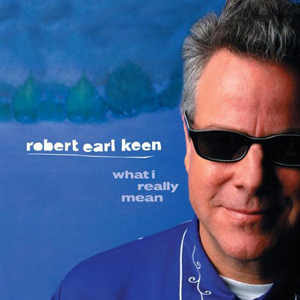 For the follow-up, 2005’s What I Really Mean, Keen stuck with Brotherton as producer but brought an even more focused batch of songs into the studio. The wildly inventive “Mr. Wolf And Mamabear,” a twisted tale of crime in a shadowy town that may or may not have been populated by talking animals (it’s open to interpretation) showed that Keen’s narrative gifts and askew wit were as sharp as ever, and he and the band brought fulsome texture and impassioned playing to everything from the jazz-tinged valentine of the title track to the gutsy rock of “Long Chain” and “The Dark Side of the World” to the Tex-Mex lark of “A Border Tragedy” (featuring a presumably tongue-in-cheek cameo from classic country great Ray Price). It wasn’t so much a return to form as it was a gauntlet-throwing insistence that Keen and his band could do this widescreen, state-of-the-art Americana rock ’n’ roll thing right.
For the follow-up, 2005’s What I Really Mean, Keen stuck with Brotherton as producer but brought an even more focused batch of songs into the studio. The wildly inventive “Mr. Wolf And Mamabear,” a twisted tale of crime in a shadowy town that may or may not have been populated by talking animals (it’s open to interpretation) showed that Keen’s narrative gifts and askew wit were as sharp as ever, and he and the band brought fulsome texture and impassioned playing to everything from the jazz-tinged valentine of the title track to the gutsy rock of “Long Chain” and “The Dark Side of the World” to the Tex-Mex lark of “A Border Tragedy” (featuring a presumably tongue-in-cheek cameo from classic country great Ray Price). It wasn’t so much a return to form as it was a gauntlet-throwing insistence that Keen and his band could do this widescreen, state-of-the-art Americana rock ’n’ roll thing right.
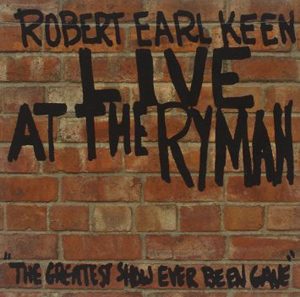 After What I Really Mean, Koch briefly flooded the market with a greatest hits set and another live album. Best, much like Sugar Hill’s 2003 Keen anthology, The Party Never Ends, was frustratingly incomplete as compilations go, but Live at the Ryman (featuring banjoist Danny Barnes) is a satisfyingly righteous follow-up to the previous decade’s No. 2 Live Dinner. It’s one of several worthwhile but second-tier live albums in his catalog, along with 2004’s Live from Austin Texas (an Austin City Limits show from 2001), 2008’s download-only Marfa After Dark and 2009’s Undone: A Musical Tribute. The Undone album, recorded at MusicFest in Steamboat Springs, Colo., features 20 or so of the Texas/Red Dirt music scene’s biggest contemporary acts — Cody Canada, Randy Rogers, Jason Boland, etc. — paying acoustic tribute to Keen, followed by a raucous five-song set by the honoree himself with his full band.
After What I Really Mean, Koch briefly flooded the market with a greatest hits set and another live album. Best, much like Sugar Hill’s 2003 Keen anthology, The Party Never Ends, was frustratingly incomplete as compilations go, but Live at the Ryman (featuring banjoist Danny Barnes) is a satisfyingly righteous follow-up to the previous decade’s No. 2 Live Dinner. It’s one of several worthwhile but second-tier live albums in his catalog, along with 2004’s Live from Austin Texas (an Austin City Limits show from 2001), 2008’s download-only Marfa After Dark and 2009’s Undone: A Musical Tribute. The Undone album, recorded at MusicFest in Steamboat Springs, Colo., features 20 or so of the Texas/Red Dirt music scene’s biggest contemporary acts — Cody Canada, Randy Rogers, Jason Boland, etc. — paying acoustic tribute to Keen, followed by a raucous five-song set by the honoree himself with his full band.
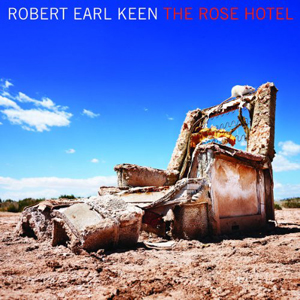 Following his stint on Koch, Keen returned, prodigal-son like, to the Lost Highway family in time for 2009’s The Rose Hotel, his first studio set produced by Lloyd Maines. The late-model weirdness that Keen had started dabbling in around Gravitational Forces was in full swing, but by this point he and his band were delivering even oddities like the cryptic title track and the Billy Bob Thornton duet (no, really) “10,000 Chinese Walk Into a Bar” with such renewed gusto and old-pro sonic goodness (thanks in no small part to Maines) that it was hard to complain.
Following his stint on Koch, Keen returned, prodigal-son like, to the Lost Highway family in time for 2009’s The Rose Hotel, his first studio set produced by Lloyd Maines. The late-model weirdness that Keen had started dabbling in around Gravitational Forces was in full swing, but by this point he and his band were delivering even oddities like the cryptic title track and the Billy Bob Thornton duet (no, really) “10,000 Chinese Walk Into a Bar” with such renewed gusto and old-pro sonic goodness (thanks in no small part to Maines) that it was hard to complain.
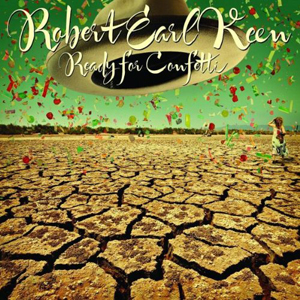 Better yet was 2011’s Ready For Confetti, again with Lost Highway and Maines, expanding his musical palette even further with dips into gospel (“Soul of a Man,” “Lay Down My Brother”) and surprisingly uncheesy island rhythms (“Waves on the Ocean”and the title track, musical cousins to Rose Hotel’s sincerely funny “Something That I Do”) while still tipping his hat convincingly to the outlaw-tinged country-folk that brought him to the dance in the first place. At a youthful-looking and hard-traveling 55, surrounded by younger artists bearing his unmistakable influence, Keen still never seems like the old guy at the party; in the words of Charles Dickens, he’s more like the founder of this feast.
Better yet was 2011’s Ready For Confetti, again with Lost Highway and Maines, expanding his musical palette even further with dips into gospel (“Soul of a Man,” “Lay Down My Brother”) and surprisingly uncheesy island rhythms (“Waves on the Ocean”and the title track, musical cousins to Rose Hotel’s sincerely funny “Something That I Do”) while still tipping his hat convincingly to the outlaw-tinged country-folk that brought him to the dance in the first place. At a youthful-looking and hard-traveling 55, surrounded by younger artists bearing his unmistakable influence, Keen still never seems like the old guy at the party; in the words of Charles Dickens, he’s more like the founder of this feast.
MR. RECORD MAN’S TOP 5 ROBERT EARL KEEN ALBUMS
1. No Kinda Dancer, Rounder/Philo, 1984 (Reissued on Koch/Rosetta 2004)
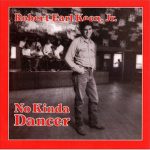 Keen’s self-produced debut still holds up as one of the most consistently charming ablums of his career. His woody, off-kilter twang nested nicely in the rustic, evocative acoustics of songs alternately sweet, funny, dark, and full with sepia-photograph detail. Lyle Lovett and Nanci Griffith collaborated with co-writes and harmonies, each apparently knowing a future roots-music giant when they saw one. Key tracks: “The Armadillo Jackal,” “Rollin’ By,” “No Kinda Dancer”
Keen’s self-produced debut still holds up as one of the most consistently charming ablums of his career. His woody, off-kilter twang nested nicely in the rustic, evocative acoustics of songs alternately sweet, funny, dark, and full with sepia-photograph detail. Lyle Lovett and Nanci Griffith collaborated with co-writes and harmonies, each apparently knowing a future roots-music giant when they saw one. Key tracks: “The Armadillo Jackal,” “Rollin’ By,” “No Kinda Dancer”
2. West Textures, Sugar Hill, 1989
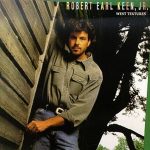 Before his more adventurous streaks as a lyricist and recording artist kicked in, Keen was already a world-beater by more conventional country-folk standards. West Textures paved over the dirt-road ambience of No Kinda Dancer a bit, making it less distinctive but more accessible for people to find not only “The Road Goes On Forever” and “Five Pound Bass” (which in hindsight sound more like blueprints for the live show jams than finished products) but also the more personal and subtly heartbreaking side of his songwriting. It would become an underrated gift as Keen became more heralded for his rowdy concerts and morbid humor, but the best songs here (as well as on Gringo Honeymoon, another understated gem) endure as evidence of a soft spot that’s also a strong suit. Key tracks: “Love’s A Word I Never Throw Around,” “Mariano,” “Leaving Tennessee”
Before his more adventurous streaks as a lyricist and recording artist kicked in, Keen was already a world-beater by more conventional country-folk standards. West Textures paved over the dirt-road ambience of No Kinda Dancer a bit, making it less distinctive but more accessible for people to find not only “The Road Goes On Forever” and “Five Pound Bass” (which in hindsight sound more like blueprints for the live show jams than finished products) but also the more personal and subtly heartbreaking side of his songwriting. It would become an underrated gift as Keen became more heralded for his rowdy concerts and morbid humor, but the best songs here (as well as on Gringo Honeymoon, another understated gem) endure as evidence of a soft spot that’s also a strong suit. Key tracks: “Love’s A Word I Never Throw Around,” “Mariano,” “Leaving Tennessee”
3. A Bigger Piece of Sky, Sugar Hill, 1993 (Reissued on Koch/Rosetta 2004)
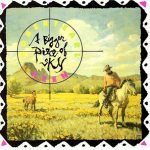 Keen had been kicking up enough dust as a bluegrass-inspired folkie that he couldn’t help but grow into a bigger, more diverse sound. More or less laying the blueprint for the rest of his career, the production (courtesy of Garry Velletri) shifted from rustic to state-of-the-art, giving his songs a rock ’n’ roll edge to match the stormy lives of the drunks, drifters, and psychopaths that populated them. Music critics already tiring of the Garth Brooks era of mainstream country had somebody new to crow about. Key tracks: “Whenever Kindness Fails,” “Blow You Away,” “Corpus Christi Bay,” “Paint The Town Beige”
Keen had been kicking up enough dust as a bluegrass-inspired folkie that he couldn’t help but grow into a bigger, more diverse sound. More or less laying the blueprint for the rest of his career, the production (courtesy of Garry Velletri) shifted from rustic to state-of-the-art, giving his songs a rock ’n’ roll edge to match the stormy lives of the drunks, drifters, and psychopaths that populated them. Music critics already tiring of the Garth Brooks era of mainstream country had somebody new to crow about. Key tracks: “Whenever Kindness Fails,” “Blow You Away,” “Corpus Christi Bay,” “Paint The Town Beige”
4. No. 2 Live Dinner, Sugar Hill, 1996 (Reissued on Koch/Rosetta 2004)
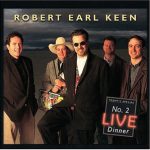 Keen is quite possibly the king of the live country/Americana album. Not because his voice particularly cuts through the adroit racket of his impeccable mid-90s band (though it fairly soars when given room on “Rollin’ By” or “I’m Coming Home”), but because beered-up fans singing along and Keen drawling his way through witty monologues are almost essential to understanding his appeal. The breakneck jams on songs from tamer studio albums make these, often enough, feel like the definitive versions. Key tracks: “Think It Over One Time,” “The Road Goes on Forever,” “Five Pound Bass”
Keen is quite possibly the king of the live country/Americana album. Not because his voice particularly cuts through the adroit racket of his impeccable mid-90s band (though it fairly soars when given room on “Rollin’ By” or “I’m Coming Home”), but because beered-up fans singing along and Keen drawling his way through witty monologues are almost essential to understanding his appeal. The breakneck jams on songs from tamer studio albums make these, often enough, feel like the definitive versions. Key tracks: “Think It Over One Time,” “The Road Goes on Forever,” “Five Pound Bass”
5. What I Really Mean, Koch/Rosetta, 2005.
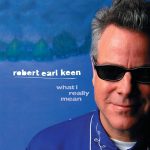 After a bit of a post-millennial slump, Keen and band regained their footing with 2003’s Farm Fresh Onions, a brightly eclectic charmer that paved the way for this even better follow-up, which leaned darker in sound, subject matter, and edge. Lead guitarist Rich Brotherton took to the production board for both projects; on What I Really Mean in particular, he took it upon himself to remind the world just how self-assuredly his longtime bandmates could rock out, not to mention that the guy up front was one hell of a songwriter (and at a peak as an expressive and confident, if still unconventional, vocalist). Key tracks: “Mr. Wolf and Mamabear,” “Long Chain,” “Dark Side Of The World”
After a bit of a post-millennial slump, Keen and band regained their footing with 2003’s Farm Fresh Onions, a brightly eclectic charmer that paved the way for this even better follow-up, which leaned darker in sound, subject matter, and edge. Lead guitarist Rich Brotherton took to the production board for both projects; on What I Really Mean in particular, he took it upon himself to remind the world just how self-assuredly his longtime bandmates could rock out, not to mention that the guy up front was one hell of a songwriter (and at a peak as an expressive and confident, if still unconventional, vocalist). Key tracks: “Mr. Wolf and Mamabear,” “Long Chain,” “Dark Side Of The World”




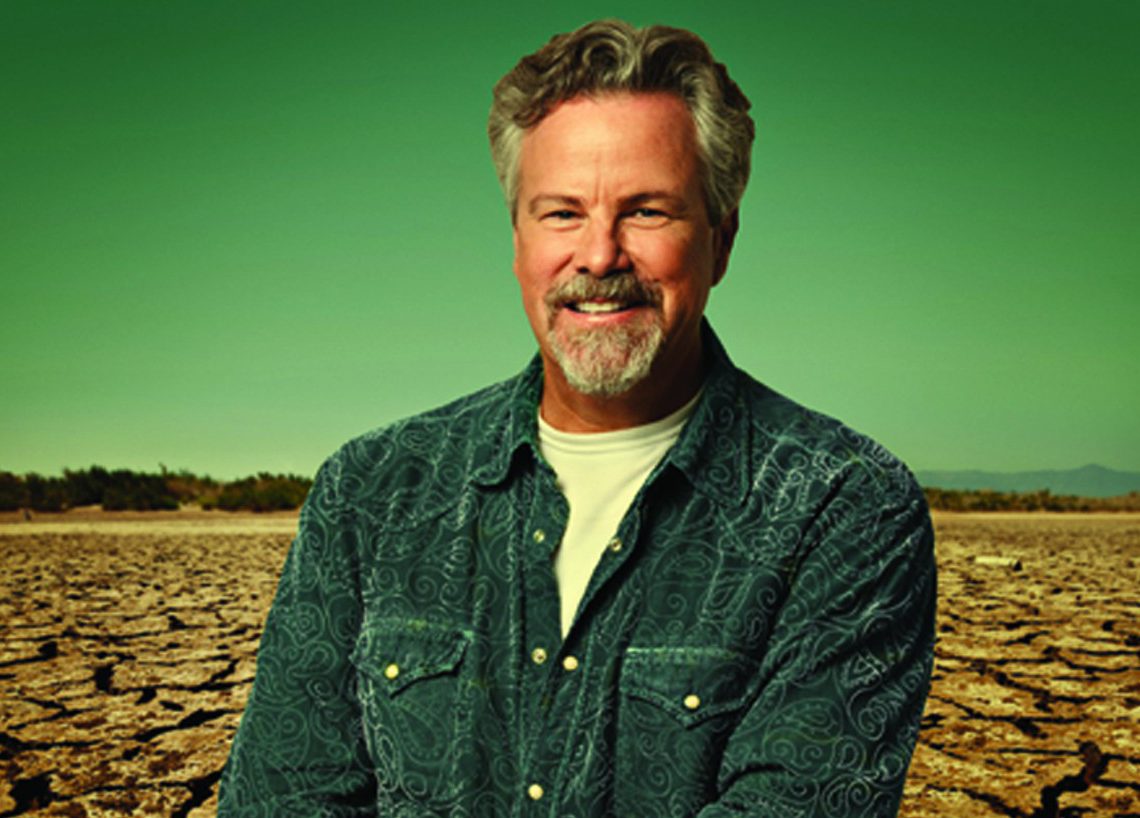

No Comment